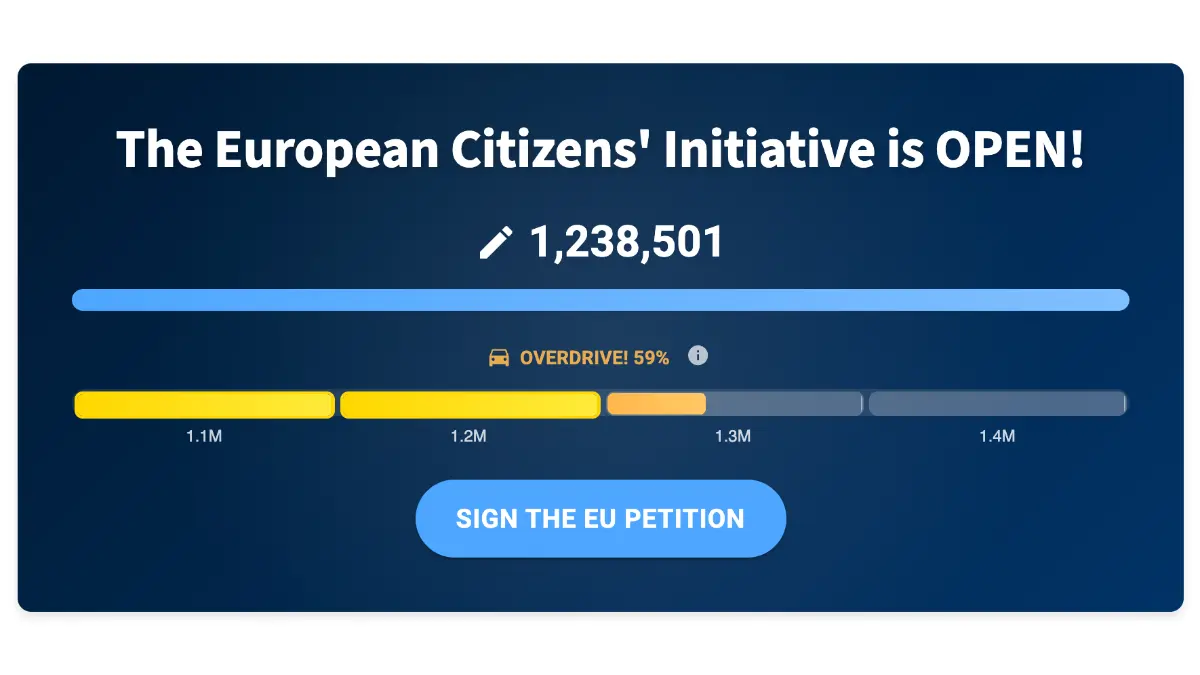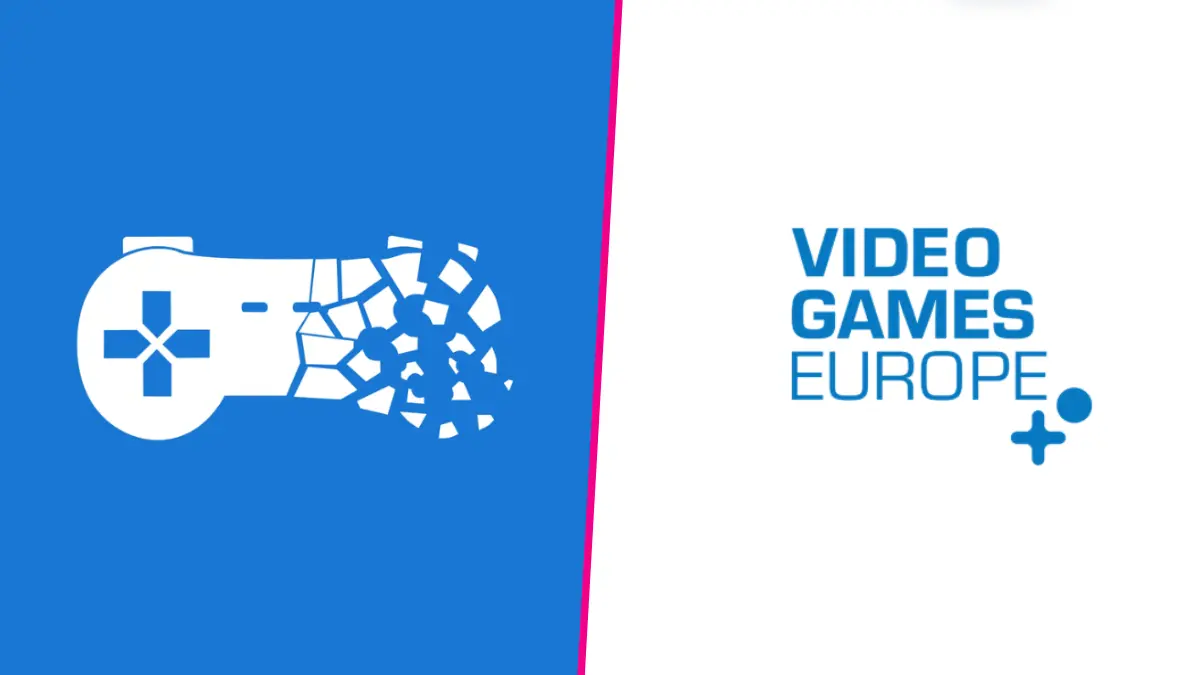Ever decided to play a game you bought years ago only to find it vanished? Plenty of people have. And even more are worried this will happen to them as well. In fact, over a million just signed a petition to do something about it.
On July 3, the Stop Killing Games campaign officially crossed the one million signature mark. And unlike most online petitions, this one was pushed through the EU’s Citizens’ Initiative system, meaning it might actually amount to something.
It’s a big win, but the game’s not over. Now that the signatures are in, the real question is what happens next. To answer that, let’s quickly break down what Stop Killing Games is, why it matters, and what this milestone could mean for gamers across Europe and beyond.
What is “Stop Killing Games”?
At its heart, Stop Killing Games is a movement about one thing: not losing access to stuff you paid for.
The core demand is simple enough: If a video game gets pulled offline because a publisher shuts down its servers, you should still be able to play it in some form. This isn’t about making every game immortal or demanding studios pour infinite resources into maintaining old titles. It’s about basic consumer rights.
The current problem is that once a game’s backend goes offline, it often takes the entire experience with it. No servers, no gameplay, no way to revisit that cool story mode you were halfway through. And in some cases, even single-player content is locked behind a server that no longer exists. You bought it, you downloaded it, and now it’s just… gone.
Stop Killing Games wants that to change. The movement calls for publishers to provide some kind of fallback once a game is no longer supported: an offline mode, downloadable server files, anything that would make it playable with some extra effort.
And unlike your cousin’s change.org petition to bring back Vine, this one’s got some real footing. It was submitted through the European Citizens’ Initiative, a mechanism that actually forces the EU to listen if a cause gets enough support.

Stop Killing Games did just that once it passed one million verified signatures this month. That means the European Commission is now legally required to review the proposal, meet with organizers, and issue a formal response.
Will it turn into actual legislation? That’s still up in the air, but the petition already accomplished what few gaming movements ever do: it broke through.
Ross Scott, the face of SKG
If Stop Killing Games had a face, it’d be Ross Scott’s. He’s a longtime YouTuber best known for Freeman’s Mind, a cult series where he voices Gordon Freeman’s inner monologue while playing through Half-Life games.
While his content is all about chaotic humor, Scott’s deadly serious about game preservation. He talked about it for years, but in 2024, he decided to do something more direct.
After Ubisoft shut down The Crew, removing access even for people who paid for it, Scott launched the Stop Killing Games campaign to push for legal protections. He outlined a simple goal: stop companies from vanishing games without offering any way to keep playing them.
Scott’s passionate, outspoken, and not exactly one for corporate polish. In his first video, after the petition hit one million signatures, Ross didn’t celebrate. Instead, he warned that spoofed or invalid signatures might mean the real count is lower.
“We may not have won anything,” Scott said. “I have no idea what’s real now.” And so, he’s still urging supporters to keep signing the petition until the July 31 deadline, just in case the final verification needs a bigger safety margin.
“We need to pick up the slack for the people who literally can’t write their own name properly,” Ross explains, reminding viewers that juggling all this stress, server drama, and even reports of SKG-themed cryptocurrency scams (which he disowned as “the dumbest timeline”), hasn’t made him lose his signature brand of humor.
Scott’s rough edges are part of the appeal. He’s not running a PR campaign here. He’s just a guy trying to make sure people don’t lose access to the games they love.
How SKG hit 1 million signatures
Scott’s movement started modestly, with a website and its titular slogan, both launched after The Crew drama in April 2024.
While he initially encouraged supporters to petition with various regulators against “assault on both consumer rights and preservation of media,” the movement eventually concentrated on the European Citizens’ Initiative, registered in mid-June and launched on July 31, 2024.
The petition managed to get 350,000 signatures in its first two months, though it started losing steam at this point. Nearly a year later, support from YouTubers like MoistCr1TiKaL and PewDiePie helped push it over the finish line, propelling it from around half a million signatures on June 26 to double that a week later.
Social media also played a big role, with calls to action sprucing up on any remotely gaming-related board, ranging from r/GameDev to a Yakuza fan sub.
The Pirate Software drama
Long before the final push began, the initiative got pulled into some drama.
Jason “Thor” Hall, a developer and streamer behind Pirate Software, has been criticizing Stop Killing Games from the outset. In August 2024, he shared two YouTube videos calling the initiative unrealistic.
Hall argued SKG is a threat to live-service games and could even place unfair burdens on indie developers like Pirate Software.
Scott eventually fired back by accusing Hall of misrepresenting the campaign and muddying the waters. He clarified that the petition only asks studios to offer fallback options once a game is pulled, not to maintain them forever.
The spat spilled onto social media, with Scott even alleging Hall deleted some of his comments that he read live on stream, which would have helped clarify the SKG message. Hall claimed this was due to YouTube’s imperfect VoD storage system.
Whether the beef helped the initiative or hurt it is debatable, but it certainly sparked wider conversations about where game preservation ends and developer freedom begins. A messy territory, sure, but worth investigating.
What does this mean for gamers?
Reaching one million signatures through the European Citizens’ Initiative isn’t just symbolic, but has real legal weight. Under EU rules, once that threshold’s crossed, the European Commission is required to review the proposal, meet with the campaign organizers, and issue a formal response.
That doesn’t guarantee new laws overnight, but it does mean the issue can no longer be brushed aside. From here, the EC can hold hearings, commission research, and potentially begin drafting legislation. It’s a long road with no guarantees, but it starts right here.
Meanwhile, there are already signs the pressure is working even without legislation. After killing The Crew, Ubisoft announced that other games in the series would get offline modes. That kind of pivot doesn’t happen in a vacuum.
Of course, the EC can only draft EU legislation. But the initiative could potentially help everyone. When Europe sets consumer protection standards, history shows that other parts of the world often follow, as was recently the case with things like GDPR and USB-C adoption. There’s every reason to believe something similar could happen here, putting pressure on publishers worldwide.
Industry pushback
Not everyone is cheering the campaign on. Just as SKG hit a million signatures, Video Games Europe issued a five-page response to the petition that’s not exactly positive.
The group argued that imposing legal requirements to keep online games playable indefinitely would “have a chilling effect on game design,” raise development costs, and potentially discourage publishers from making or releasing such games in Europe in the first place.
Note that VGE isn’t some fringe group. It represents the global heavyweights in gaming, including PlayStation, Nintendo, EA, Take-Two, Sega, and Ubisoft, among others.
Its opposition to SKG is a clear indicator of what the big names in the industry think about the initiative right now.
What happens next?
Now that the one million mark has been hit, the process moves into its next phase.
First, the statements of support need to be verified. SKG has until October 31 to complete this step, which marks three months from the end of the collection period.
These statements are grouped by country and sent to local authorities, who then have another three months to confirm the supporters are real people. That means verification will wrap up no later than January 2026.
SKG will then have another three months to submit the final initiative to the EC, which kicks off the examination process.
Within the first month, Commission representatives will meet with petitioners to hear more details about the proposal. In the following three months, petitioners can present their case to the European Parliament, where members may adopt a resolution or ask questions directly.
No matter what, the Commission must issue a formal response within six months of the examination’s start. In a best-case scenario, that could include a commitment to draft new legislation.
Meanwhile, any Member of the European Parliament can independently take up the cause and propose a law of their own. That’s one possible fast-track route if political momentum builds.
Could this movement have been stronger?
The short answer? Yes, but that doesn’t mean it failed.
The name Stop Killing Games is blunt, memorable, and maybe a little too aggressive for a political campaign. Something like “Digital Game Preservation Initiative” might have been more palatable in Brussels, even if it wouldn’t have gone viral on Reddit.
The messaging also wasn’t always crystal clear. Early on, some developers misunderstood the proposal as a demand to keep all online games alive forever. Cue the PirateSoftware drama and a flurry of YouTube debates that probably didn’t help new viewers understand the campaign’s actual goals.
That said, the grassroots energy behind Stop Killing Games is exactly what made it work.
It didn’t have a marketing budget. It didn’t need corporate backing. It had one loud YouTuber, some moderators trying to hold the internet together, and over a million people who agreed that if you buy a game, you shouldn’t lose it just because a server shuts down.
So yeah, it was messy. But it got results.
A rare win for game preservation
Despite the milestone, the campaign isn’t over yet. The EU still has to validate the signatures, and Ross Scott has made it clear he won’t consider this a “win” until a safe margin is confirmed.
That means the push continues until July 31—so if you haven’t signed yet, now’s the time to do it.
Still, it’s worth pausing to acknowledge how rare this moment is. A scrappy, creator-led movement forcing one of the world’s largest political bodies to take video game preservation seriously is no small feat.
As Scott himself recently put it: “The problem isn’t getting gamers to care about games, it’s getting people to care about anything.”
What comes next is uncertain, but the message is loud and clear: People don’t want to see the games they bought with their hard-earned money disappear.

